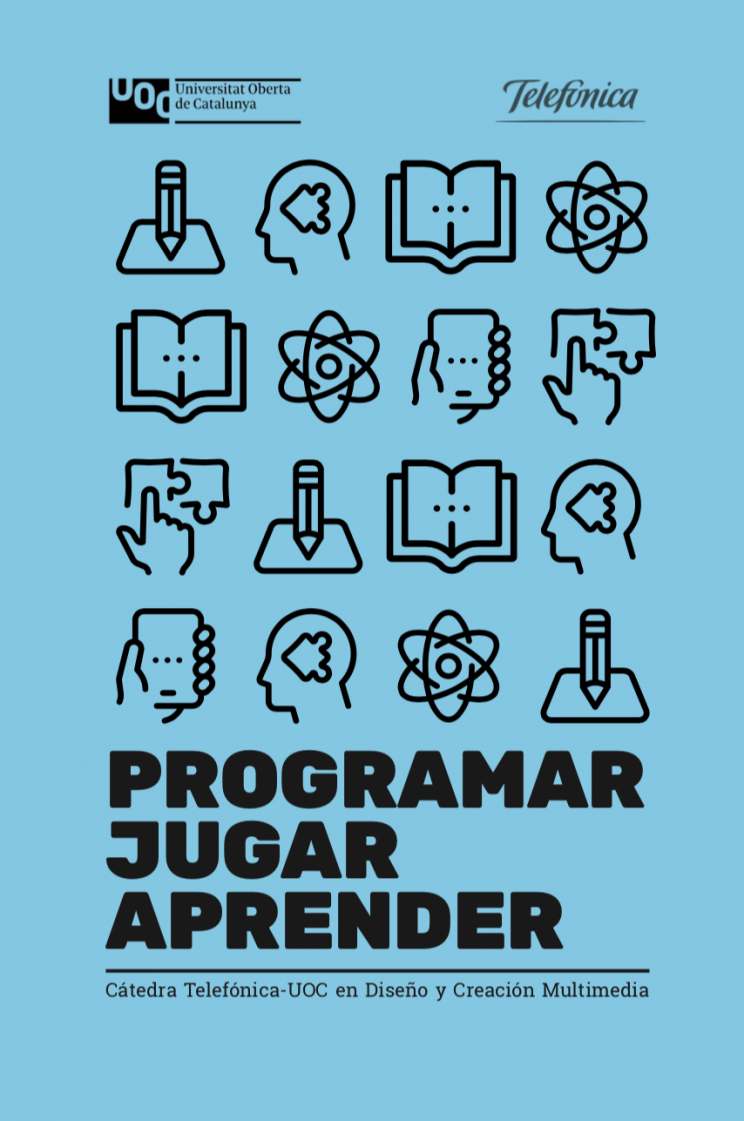One of my activities as editor of blog of the Telefónica-UOC Chair in Multimedia Design and Creation is the production of free publications that include documentation about meetings, workshops and seminars.
The report Programar, Jugar, Aprender (Learn, Play, Code) is an edited and updated compilation of the articles that I have written about the initiatives linked to facilitating the learning of programming and R&D processes in young users. These entries have been published in the Design Matters blog since 2016 and are compiled here as a single text, updating the information and linking the contents in thematic chapters. The 36-page volume is structured as follows:
- From STEM to STEAM: the introduction addresses the separation between the sciences and the humanities, focusing on the bridges that have been traced between the two, from the well-known text by Charles Pierce Snow in 1959 to the STEAM initiative, which promotes the inclusion of art and design in the teaching of science, technology, engineering and mathematics.
- Learning to program while playing: this chapter reviews some educational projects and consumer products that propose a new approach to programming, more accessible to young and non-specialist audiences, which extracts skills that go beyond the use of computers. This section analyses programming environments such as Scratch, Swift Playgrounds or Google Bloks, and various educational toys.
- Toys for limited creativity: a critical look at some products that promise consumers a creative freedom that is actually limited to a series of options predetermined by the company. These examples contribute to a better understanding of the contributions of the projects in the previous chapter and how the “do-it-yourself” promise can become a resource to add the consumer to the product’s own production chain, without really providing them with new skills or learning how the software or hardware works.
- Small inventors: the Inventors! project developed by designer Dominic Wilcox since 2015 serves as a conclusion to the contents of this volume, explaining how offering children the possibility of imagining without the limitations and processes established in the respective disciplines allows them to put forward ideas that reflect an unusual perspective and can therefore generate innovative ideas.
The publication is completed with a list of bibliographical references and links to websites that allow the contents exposed in the texts to be explored in greater depth.
The free e-book (in Spanish) can be downloaded here

